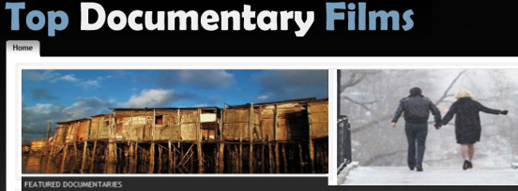
Yesterday, we published a list of our Top 10 favourite narrative features at VIFF 2012, all of the films we wrote about, revelatory, poignant, humane and human scale, films that moved us beyond words which might find expression to portray such, cinema which helped to provide us with a new and transformative direction forward in our lives, the path not only towards light and enlightenment, but a re-prioritization of our life’s goals and a focus on that which is most important — connection, fidelity, family, community activism, and the struggle in which we all must engage to bring about a better, fairer, more just and humane world for ourselves, our family, our neighbours, and all of us living in and across every far flung community — in every country of the world — across our globe.
Today, then, the 10 documentary feature films that screened at VIFF2012 that most moved and enlightened us, and most contributed to a rekindled appreciation of what is necessary to transform our world — not as naïve, unthinking projection, but real world, working with others, change. For only working together, we will find ourselves able to begin the long, hard journey towards a world that values us, our families, our neighbours, and every citizen, in every country, across our vast, complex planet.
![]()
![]()
![]()
![]()
![]()
![]()
![]()
![]()
![]()
1. Bay of All Saints: Far and away, our favourite doc at VIFF 2012, as is the case with the Top 5 documentary films on our list, Bay of All Saints pulled us in, gripped us like mad with phenomenally strong rooting interests, the film at all times one of the most poignant, revelatory and humane documentary films we screened this year. Filmed by Annie Eastman, Diane Markrow and Davis Coombe over a six-year period, from 2005 til 2011, at the three-quarter point in the film, when 9-year-old Rebeca goes missing, you are crushed, devastated, you almost can’t breathe, and you are angry, angry, angry with the filmmakers for creating such an indelible rooting interest in Rebeca, and then have her volatilizarse into … what? harm’s way? Unforgivable … until, until … Set amidst the waterfront palafita slums of Salvador, Brazil, this winner of SXSW’s Audience Award for best documentary, Annie Eastman’s potent non-fiction film paints an often tragic picture of life in the impoverished shantytown, yet manages somehow to offer a profound and moving expression of hope, through the fighting spirit and struggle of the film’s principles. Outstanding. Humane. Heartrending.
2. Stories We Tell: Groundbreaking, reverential truth-telling of the first order, a story of a life unraveled and somehow pulled back into coherence, where tough, tough questions are confronted and answered, Sarah Polley’s devastating documentary feature is nothing less than a cinematic work of art, a film that in exploring the dynamics of family, memory and truth, limns the ragged poetry of life. Shocking, melancholy, and lovely beyond words.
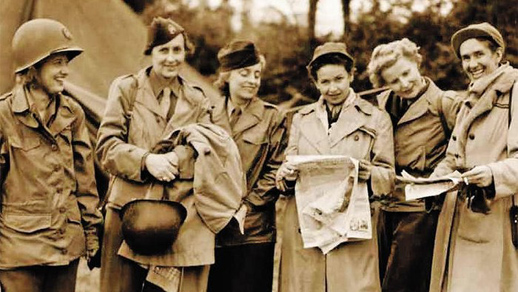

3. No Job for a Woman: The Women Who Fought to Report WWII: Offering a powerful indictment of the discrimination to which women reporters were subjected in reportial coverage of WWII, and a moving testament to the will, character and strength of purpose of groundbreaking reporters Ruth Cowan, Martha Gelhorn and photographer Dickey Chapelle. From sneaking aboard a hospital ship to be able to cover D-Day, as in the case of Gelhorn, or defying orders to capture photographs of wounded Marines from Iwo Jima — photos so powerful that Life magazine refused to run them — the legacy of these pioneers, who changed not only the role of women in journalism, but also how war was reported — by portraying its collateral damage on civilian populations rather than just tactics and battles — continues to this day to inform mainstream media news coverage of tragic circumstance and war, and news reporting on the human condition.
4. The World Before Her: One of the most involving, engaging and transformative documentaries screened at VIFF2012, the film presents the 20 finalists in the Miss India contest as informed, educated, feminist, near-revolutionaries working to overturn conventional norms and the social order vis-à-vis women’s roles in the society. Juxtaposing the stories of these women with that of a young fundamentalist Hindu Nation woman, Prachi, who has dedicated her life to preserving (even if by violent means) a social order that diminishes the humanity of women … well, this is powerful documentary filmmaking of the first order, a film that has it all — a powerful and involving story, ‘characters’ on screen who could not be more sympathetic, and in being such present wildly engaging rooting interests. A fully realized vision from the film’s director, Nisha Pahuja. A great doc!
5. Revolution: A recently released United Nations report states that should world powers fail to address the issue of the acidification of our oceans, seas, lakes and other water bodies, by the year 2048, the lack of government action on the matter will result in the extinction of all sea life, vanishing from the earth forever. Employing the most moving, non-didactic, wildly entertaining and humane means possible, filmmaker Rob Stewart has turned in a mighty doc, one that should be seen by everyone. Quite simply, Stewart’s entirely revelatory doc emerged as one of the most engaging and informative and heartfelt documentaries we screened at VIFF2012 (we were in tears at moments throughout the film). We went into the screening doubting that the film would be anything more than a rehashed diatribe, and came out believing that Revolution should be mandatory viewing for every student, in every school across the globe (for adults, as well). We even tweeted Vancouver Board of Education Chair, Patti Bacchus, with such suggestion. Hopefully Patti — and everyone who’s reading this — will take in this Thursday’s, 7pm screening at the Vancity Theatre, on Seymour.
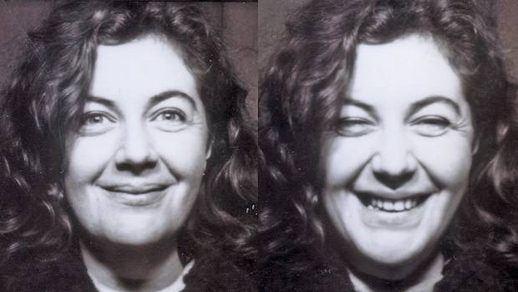

6. Nuala: Renowned Irish journalist, feminist TV producer and host, book reviewer, teacher and New York Times best-selling author Nuala O’Faolain, who passed on May 9, 2008, was the second eldest of nine children, the daughter of neglectful parents — a raffish social affairs columnist father, and a book-loving, alcoholic mother. Somehow, through her love of literature, a becoming and entrancing beauty which brought her many (many) lovers, and the undampened spirit she carried within her throughout her life, Nuala prevailed. As British poet Philip Larkin wrote, “They fuck you up, your mum and dad. They may not mean to, but they do.” Winner of VIFF’s 2012 Best International Documentary award.
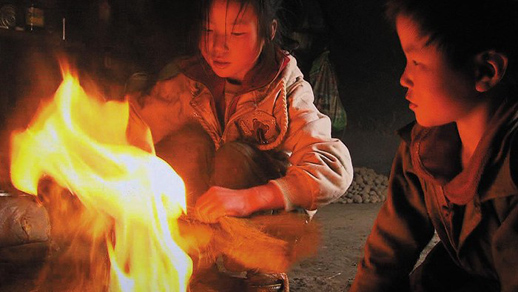

7. Three Sisters: Wang Bing’s documentary, third eye camera tracks infant children and their barely older cousin who, in the most impoverished circumstance possible, and against all reasonable odds, care for themselves, fend for themselves, in what was for us the most eye-opening, deeply human, strikingly lensed documentary film we screened at VIFF 2012. The three sisters of the title are Yingying (10), Zhenzhen (6) and Fenfen (4), daughters of Sun Shunbao, a peasant abandoned by his wife, who scrapes for work in the nearest town of Tonghai, leaving his young daughters alone, utterly alone for weeks or months at a time. That the sisters have distinct personalities — with Zhenzhen the mischievous giggler, Fenfen the slightly forlorn follower, and Yingying the sad one — isolated, stern-faced and unbearably lonely — carrying the burden of responsibility on her tiny shoulders, her village peers’ utter imperviousness emerging as the darkest of human interactions we saw on screen at this year’s Festival — was for us, nothing less than heartrending. One of VIFF 2012’s strongest docs.
8. The Flat: A subtle investigative document, an enquiry into one Jewish family’s ongoing relationship with the German Nazi state, the fictions that propel the stories of our lives, and centering on Hannah, the filmmaker’s mother, who comes to terms with what may have been her parent’s collusionary relationship with a senior Nazi official, before and after WWII, The Flat is a moving documentary film, providing historical insight and a needed reminder of the horrors of war. Revelatory, and quietly disturbing.
9. Room 237: Director Rodney Ascher’s whirling dervish of a film, an intriguing, arcane, jaw dropping, elliptical, gleefully mad and head-first plunge down the rabbit hole of Kubrickiana, posits with precision and unassailable — if verging on crazy — verisimilitude, that Kubrick’s 1980 film, The Shining, actually limns the genocide of Native Americans and, even more darkly, the Holocaust, the ‘evidence’ less a conspiracy theorist’s waking nightmare than an insomniac’s bruising, majestically labyrinthine puzzle picture of terrifically argued, impeccably constructed rumination.
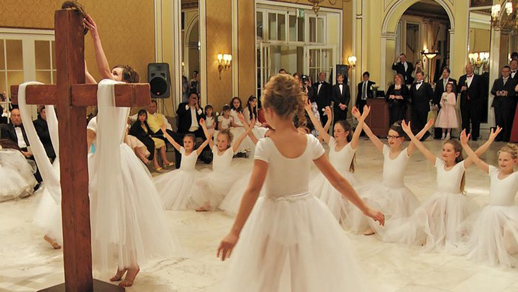

10. Virgin Tales: Focusing on Randy Wilson, the National Field Director for the ultra-conservative, U.S.-based Family Research Council, his wife, their five daughters, two sons and their spouses — ranging from ages 9 to 23 — this entirely fascinating, human scale exploration of conservative convention, ‘purity balls’ and ‘manhood ceremonies’ — the film centered on the utterly winning, broken heart of the film, eldest daughter Jordan — was at all times — even though it pissed off the audience that took in a screening of the film the last day of VIFF 2012 — moving, fascinating, warmly appreciative of the family, non-judgmental and entirely human scale in its introduction to a family whose core values we probably share, even if we might might find the societal engagement of the family members utterly abhorrent. This right wing family isn’t murdering doctors who perform abortions, they’re not blowing up public buildings or making the lives of others miserable. Hasidic Jews are allowed to raise their children as they see fit. Khalsa Sikh’s are given the same right. But not, somehow, fundamentalist Christians, about whom we are too ready to pass judgment, are not allowed anything close to the same freedom, as we tut-tut and wag our fingers and feel all superior. We thought the Wilsons, as presented on screen, were a lovely family; each of the family members sincerely loved one another. And at the end of the day, it is love — not misunderstanding and intolerance — that gives our lives meaning. We’re prepared to take this family at face value. A counterintuitive film to choose as one of the best, but you know what? Virgin Tales was one of the strongest, the best, the most joyous and heartfelt films we screened at VIFF 2012. No matter what anybody says. Sometimes you just have to go with your heart. And we are.